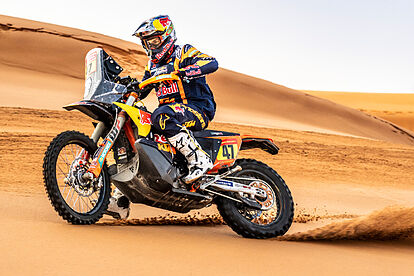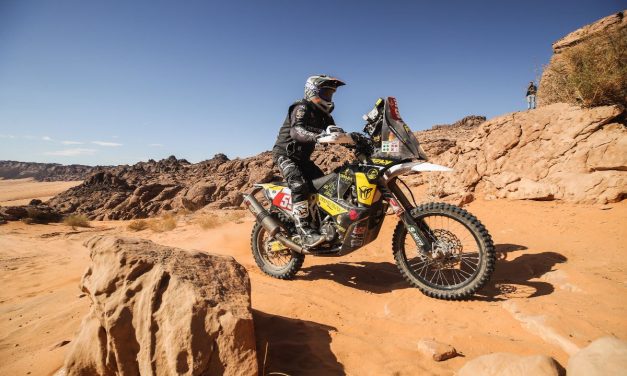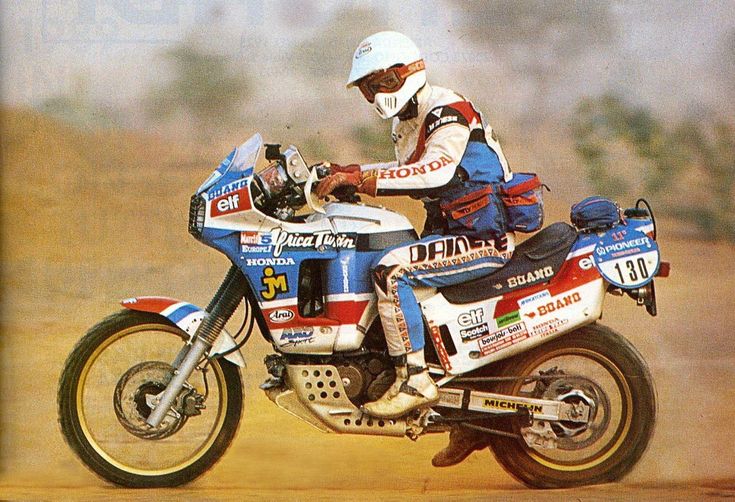

The “Original by Motul” category corresponds to the one previously titled “Malles Motos”.
Unassisted motorcycle and quad riders without any registered companions in assistance or media are eligible for this category.
Pilots in this category must adhere to a specific regulation; failure to comply results in exclusion from the category.
This category is reserved for the first 30 registered in this category.
Original by Motul, the toughest category of the Dakar


Since the 2020 Dakar Rally, the category once called “Malles Moto” has been rebranded as “Original by Motul” for motorcycle and quad riders. A name that undoubtedly refers to the origins of the Dakar rally in the late 1970s. It was then, in 1978 when the pioneer Thierry Sabine -D.E.P.P.- conceived a race with marked adventure overtones, in which the riders had to take their vehicles, motorcycles, and cars, from Paris to Dakar with no more logistics, for many of the riders, than what they could carry on their own motorcycles -they carried with their spare parts, tools, gasoline, and even the tent-.
The philosophy persists in the Original by Motul category, arguably Dakar’s toughest, requiring participants to compete without technical assistance, managing maintenance, repairs, and spare parts themselves. The organization supplied the riders with a “trunk” to store spare parts, wheels, tires, and personal belongings. They transported these items between stages and provided tools and workspace for bike maintenance.
The ‘Male
Competitors can pack a Malle (trunk) that the organizers will transport to each bivouac. The trunk must contain their spare parts, tools and equipment, and any necessary personal effects. There are restrictions on the maximum dimensions of the trunk. The organizers will also transport a spare headlamp, a set of wheels and tires, a tent, and a travel bag.
Competitors must also carry out repairs on their own vehicles in Dakar Rally 2021.
The challenge
Despite the abundance of kit, life for Original by Motul riders is far from easy. Every day, riders must prepare their bike for the next stage without outside help. This alone can take a few hours, depending on the condition of the bike.
Riders must also prepare their own road books before each stage. While a communal canteen is available for eating, it lacks the team of nutritionists found with factory-backed participants. Note that the competitor must do all of this after each stage, which in itself can last many grueling hours. After all this, cyclists need enough sleep to be ready for the next stage and it is not uncommon for competitors to survive on only two to three hours of sleep every day, for two weeks!
| Visit Us | How does an automatic transmission motorbike work? | Our website